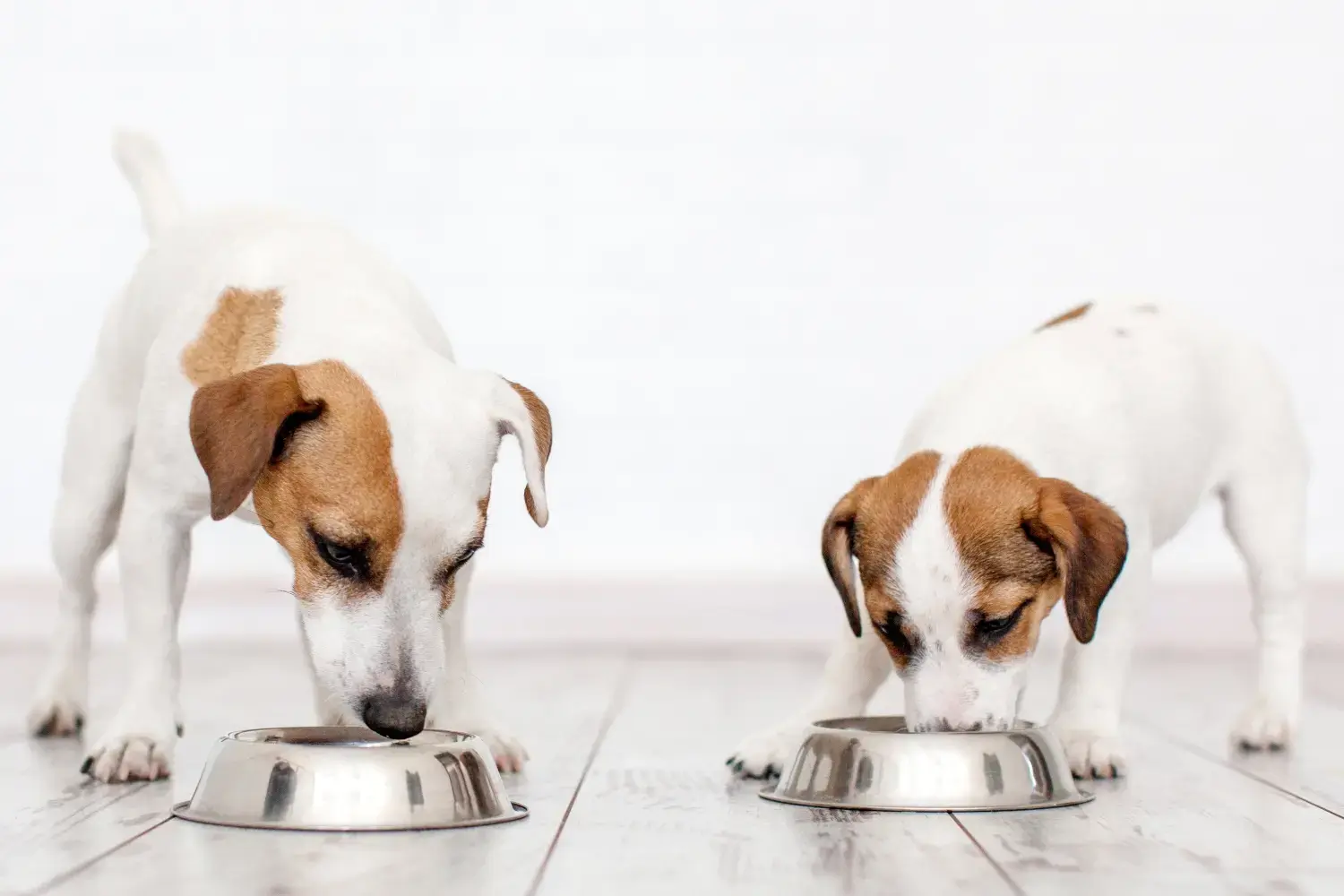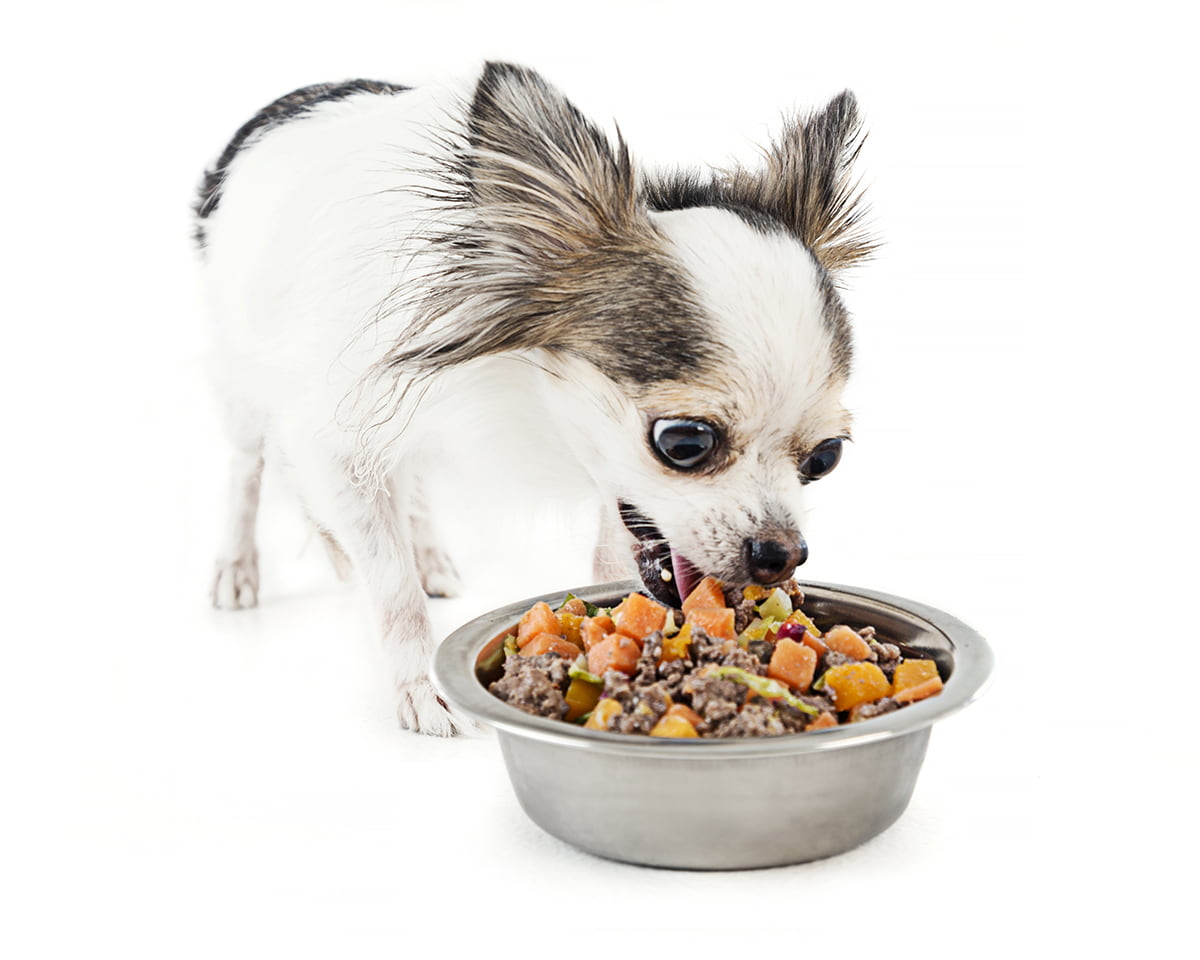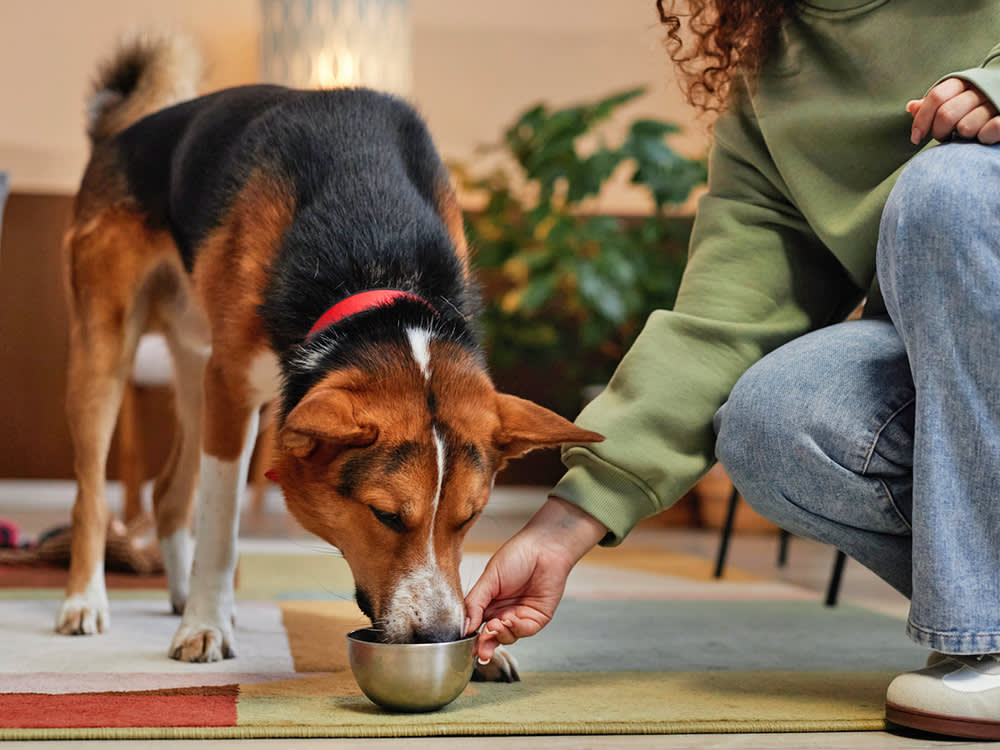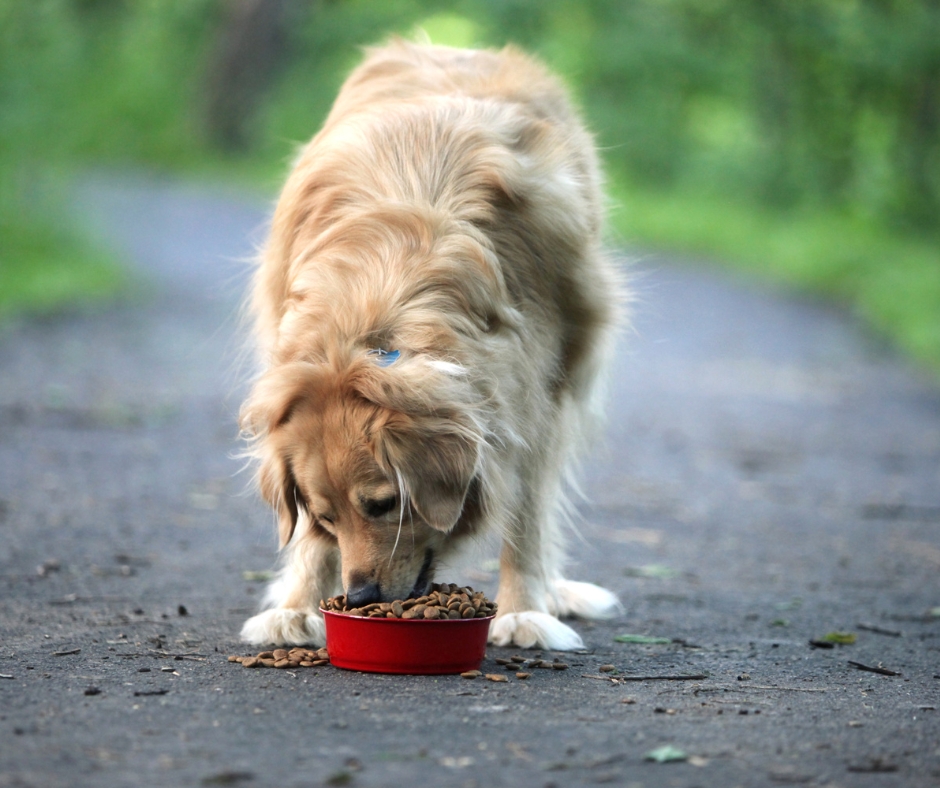Do Adult Dogs Get to Eat Puppy Food?
Adult dogs to eat puppy food still consume Although it’s not the best option for long-term nutrition. Puppies’ food supports their rapid development and growth.
The food your Adult dogs to eat puppy food greatly impacts their general health and wellbeing. Puppy Chow, rich in calories and nutrients, meets the nutritional requirements of puppies. This high-calorie diet, however, may cause weight gain and other health problems in mature dogs.
A balanced diet is necessary for adult dogs to maintain their weight, energy levels, and general health. While periodically giving them puppy chow won’t hurt them, it’s important to provide them with a diet that satisfies their current nutritional requirements. Knowing the difference may help you keep your pet content and healthy as they grow into adulthood. This strategy enhances their lifespan and quality of life in addition to supporting their physical health.
Overview of Nutrition for Adult Dogs
For Adult Dogs pet owners, an introduction to adult dog nutrition is essential. For their health, adult dogs need the proper diet. The diet of adult dogs differs from that of pups. Being aware of these requirements keeps dogs healthy and happy.
Adult dogs’ nutritional requirements
For their health, adult dogs need a balanced diet. They need to eat the following:
- Proteins that help build and repair muscles.
- I crave a glossy coat and vigor.
- Carbs to meet daily energy requirements.
- Minerals and vitamins are essential for boosting the immune system and maintaining healthy bones.
Age, size, and activity level all affect a dog’s requirements.
Distinctions between the diets of adult and puppy dogs
Puppies and adults require different types of dog food. This is the reason:
Puppy Food
- Protein : Higher
- Fat: Higher
- Calories: More
Adult Dog Food
- Protein: Lower
- Fat: Lower
- Calories: Less
Puppies need more protein, fat, and calories to grow. Adult dogs need less to maintain health.
The Fundamentals of Adult Dogs Get to Eat Puppy Food
The design of puppy food supports the growth and development of young dogs. In comparison to adult dog food, it has larger concentrations of several nutrients. Puppies may have the best start in life if their parents know the fundamentals of puppy feeding. When thinking about a diet for an adult dog, it’s important to understand what makes puppy food special.
Essential Components of Dog Food
- High-quality protein helps muscles expand.
- Fats are essential for growth and vitality.
- DHA is a brain-healthy omega-3 fatty acid.
- Calcium strengthens teeth and bones.
- Vitamins guarantee healthy cell activity.
Why Food for Puppies is Richer
Food for puppies must sustain their high energy requirements and quick development. Puppies need a lot of nourishment. This food contains more fats, proteins, and calories than usual. These components support the healthy and robust growth of pups. Dogs of adulthood need various diets. To prevent weight gain, their diet typically has lower calorie densities.
Possible effects of giving Adult dogs to eat puppy food
Adult dogs to eat puppy food to eat puppy food need different diets. Giving them puppy food may cause health problems. The high calorie and nutritional content of puppy food promotes development. However, adult dogs need food that keeps them healthy without encouraging development. Let’s examine the potential impacts on an adult dog of this dietary modification.
Risks of weight gain
- Unwanted weight gain might result from consuming more calories.
- Being overweight might cause mobility and joint difficulties.
- Obesity may lead to diabetes and other severe illnesses.
When fed puppy chow, adult dogs may ingest more calories than they expend. Weight gain is often the outcome of this. Joint pain in overweight dogs limits their range of motion. Additionally, obesity increases the chance of developing conditions like diabetes.
Concerns about nutritional imbalance
While puppy food is rich in nutrients, its design does not consider the needs of older dogs. Adult dogs require a balanced diet specific to their life stage.
Puppy Food Content
- Protein: High
- Fat: Higher
- Calcium: High
Adult Dog Requirement
- Protein:Moderate
- Fat:Lower
- Calcium:Controlled
Protein, fat, and calcium are essential for development and are abundant in puppy diets. Different quantities of these nutrients are required by adult dogs. Too much protein may strain their kidneys. Weight gain may result from excess fat. Excessive calcium intake may impact bone health.
Feeding puppy formula to adult dogs may upset their nutritional equilibrium. This imbalance may impact their general health and well-being.
When is it OK for adult dogs to eat puppy food?
Puppies of all ages can consume puppy chow. The high-energy puppy diet may sometimes be advantageous for older dogs. Let’s examine when it makes sense.
Particular Medical Conditions
Certain older dogs have health problems that necessitate additional calories. In these situations, puppy chow, which is high in nutrition and energy, is beneficial. Both weight growth and recovery depend on it. Veterinarians often recommend it for individuals who are underweight or suffer from specific ailments.
Lactation and pregnancy.
During pregnancy and lactation, dog mothers need additional nutrition. These are found in puppy food. It is abundant in essential minerals and calories. This keeps moms energized and helps them make milk. Both the mother’s and her pups’ health depends on it.
How to Switch From Dog Food for Adult Dogs to Eat Puppy Food
Adult dogs to eat puppy food from a significant turning point is when your transitions. It is essential to their well-being. Let’s examine when and how to implement this crucial modification.
Finding the appropriate time
Dogs develop at varying speeds. By nine to twelve months, small breeds often achieve adulthood. It may take up to 24 months for large breeds. The greatest advice is from your veterinarian. Watch out for symptoms such as reduced fun energy or slower development. These indicate the right transition period.
Methodical Transition Procedure
Your dog’s stomach may get upset if you make sudden meal changes. The key is a slow change. Here’s a basic strategy:
- Day 1-2: Mix 75% puppy food with 25% adult food.
- Day 3-4: Adjust to a 50/50 blend.
- Day 5-7: Shift to 25% puppy food and 75% adult food.
- Day 8: Serve 100% adult dog food.
Monitor your dog’s reaction closely. There may be loose stools or a lack of appetite. If problems continue, speak with your veterinarian. Maintain regular mealtimes. This aids in your dog’s adjustment. There should always be access to fresh water.

Comprehending dog food labels
Healthy pet nutrition depends on your ability to read dog food labels. It assists pet owners in choosing the best food for their animals. This tutorial explains how to interpret these labels.
Nutritional Data
It is essential to read the nutritional information on dog food packaging. It displays the contents of the meal. Seek out premium lipids, proteins, and carbs. The label lists the ingredients based on their weight. Place ingredients such as lamb, beef, or chicken at the top.
Additionally, labels display assured analysis. This section lists the minimum percentages of protein and fat. Additionally, it displays the highest amounts of moisture and fiber.
Finding foods that are age-appropriate
At various ages, dogs need different nutrients. Dog food is high in minerals and calories. This aids in their development. Dogs who are older need less. Feeding adult dogs with puppy food can lead to weight gain and health issues.
- Puppies: Rich in calories and protein.
- Adult dogs: nutritional balance for upkeep.
- Senior dogs: More fiber, fewer calories.
Make sure the food you provide your dog is appropriate for its stage of life. The label should indicate whether the food is suitable for puppies, adults, or elderly dogs.
Expert Views Regarding Adult Dogs Consuming Dog Food
Many dog owners are concerned about adult dogs consuming puppy food. What are the opinions of experts?
Veterinarian Perspectives
Veterinarians advise against older dogs eating puppy chow on a regular basis. Nutrients and calories are abundant in puppy formulations. Puppies need extra energy since they develop quickly. Adult dogs, however, need a different diet. Overconsumption of these nutrients might result in health problems and weight gain.
See a veterinarian if your adult dog has unique nutritional requirements. A temporary changeover can be advantageous for some. However, this shouldn’t be a permanent fix.
Suggestions from Nutritionists
Veterinarians and dog nutritionists agree. Adult dogs require balanced nutrition. For the majority of adult dogs, puppy chow is too rich. They suggest a diet that is appropriate for the exercise level and overall health of an adult dog.
- For daily feeding, opt for adult dog food.
- Seek out dishes with the right amount of protein.
- Make sure the nutrients are well balanced.
Consult a qualified dietitian for the best guidance.

Homemade Diets for Adult Dogs vs. Commercial Puppy Food
It might be challenging to choose the best diet for mature dogs. Some pet owners prefer homemade diets. Some people prefer commercial dog food. For older dogs, let’s look at both possibilities.
Benefits and Drawbacks of DIY Diets
Fresh foods are available in homemade diets. What goes into the dish is within your control. However, a thorough understanding of a dog’s dietary requirements is necessary.
- Advantages:
- Whole-food, fresh ingredients
- No fillers or preservatives
- Adaptable to certain medical requirements.
- Cons:
- The preparation process requires a significant amount of time.
- Possibility of dietary abnormalities
- requires in-depth understanding
How to make sure your diet is balanced
Maintaining a balanced diet is essential. Both commercial meals and DIY diets may overlook essential nutrients.
Take these actions:
- Speak with a veterinarian or pet dietitian.
- Examine the dietary needs.
- Incorporate lipids, proteins, vitamins, and minerals.
- Adapt meals to the size, age, and degree of exercise.
Function
- Protein: Builds muscle
- Fats: Provides energy
- Vitamins: Supports metabolism
- Minerals: Strengthens bones
Source
- Protein: Meat, eggs
- Fats: Oils, meats
- Vitamins: Fruits, vegetables
- Minerals: Meats, greens
Monitor your dog’s health closely. As necessary, make modifications. Keep in mind that a balanced diet is essential.
Common misconceptions and myths
Regarding older dogs consuming puppy food, many dog owners have misunderstandings. Let’s be clear about what is and is not true.
Dispelling Myths About Puppy Food
In moderation, puppy food does not pose a threat to older dogs. However, it may not be the optimal choice for their long-term diet. Many people think that older dogs might benefit from puppy food that is higher in calories and protein. It’s a myth. Adult dogs require balanced meals tailored to their lifestyle, not extra growth ingredients.
- Myth: Giving an older dog puppy food will increase their energy levels.
- Fact: Unnecessary weight gain in adult dogs is possible.
- Myth: All dog chow is created equal.
- Fact: Different phases of development and upkeep require different formulas.
Information regarding the nutrition of adult dogs
Dogs who are adults need food that keeps them healthy without being too calorically dense. Proteins, lipids, and carbs should all be in the proper proportions in their meals. Additionally, the meal should contain the appropriate vitamins and minerals for adult dogs.
Puppy Food
- High in calories
- Rich in protein
- For growth
Adult Dog Food
- Calorie-controlled
- Optimized protein levels
- For maintenance
Always choose a diet that is appropriate for the size, age, and activity level of your dog. Examine the nutritional information and ingredients listed on dog food labels. To choose the finest diet for your pet, see a veterinarian.
Conclusion: Choose wisely regarding your dog’s nutrition.
A healthy diet is essential for your dog’s well-being. Adult dogs to eat puppy food have distinct nutritional needs. Knowing whether adult dogs may safely eat puppy chow is crucial. This section provides advice for dog owners and highlights important aspects.
Important Takeaways
- Food for puppies is higher in vital nutrients.
- Age-appropriate, well-balanced meals are necessary for adult canines.
- In general, eating dog chow occasionally is safe.
- Adults who regularly eat puppy food may gain weight and develop nutritional imbalances.
Last Words of Advice for Dog Owners
- Before altering your dog’s food, speak with a veterinarian.
- Select food that is appropriate for the size, age, and activity level of your dog.
- Monitor your dog’s health and adjust the food as needed.
- Make sure there is always availability to clean water.
Keep in mind that a customized diet benefits your dog’s health. Make informed decisions to ensure the health and happiness of your pet!
FAQ Adult Dogs Get to Eat Puppy Food
Can Adult Dogs Consume Puppies’ Food?
Designed for developing dogs, puppy food usually has increased protein, calorie, and nutritional contents. While a modest bit of puppy food won’t hurt an adult dog once in a while, regular puppy food consumption might cause nutritional imbalances and weight gain.
Can puppy food upset an adult dog’s stomach?
Indeed, the high fat and nutritional level of puppy chow may cause gastrointestinal distress in an adult dog. Adult dogs unfamiliar with the rich puppy food recipe may experience digestive issues such as vomiting or diarrhea.
What Dangers Come With Giving Adult Dogs Puppy Food?
Because puppy food has more calories, feeding it to adult dogs might cause obesity and other health problems. Additionally, feeding puppy food to adult dogs may lead to nutritional imbalances, particularly in terms of minerals, which could potentially impact the health of their bones.
Can adult dogs consume puppy food frequently?
Adults shouldn’t regularly feed puppies. You should save it for emergencies or special occasions. Over time, giving adult dogs puppy food on a regular basis may cause health issues.
In conclusion
It’s important to know what your Adult dogs to eat puppy food needs to eat. Although it isn’t harmful, puppy food isn’t the best for their long-term health. The best option is to feed them food that is appropriate for their stage of life. For individualized guidance, speak with your veterinarian. Maintain your pet’s health by feeding them healthy food.











